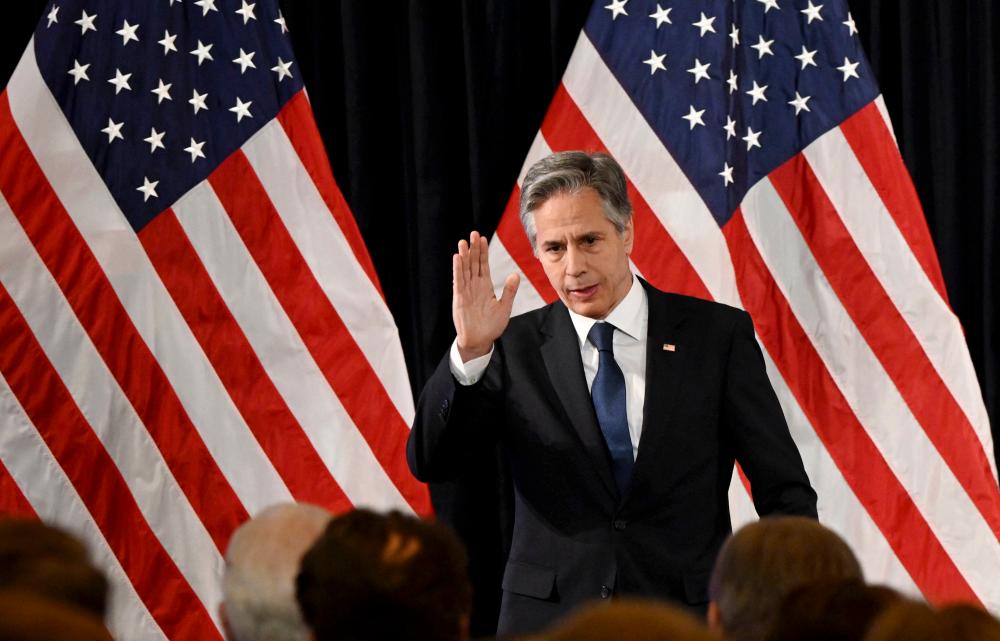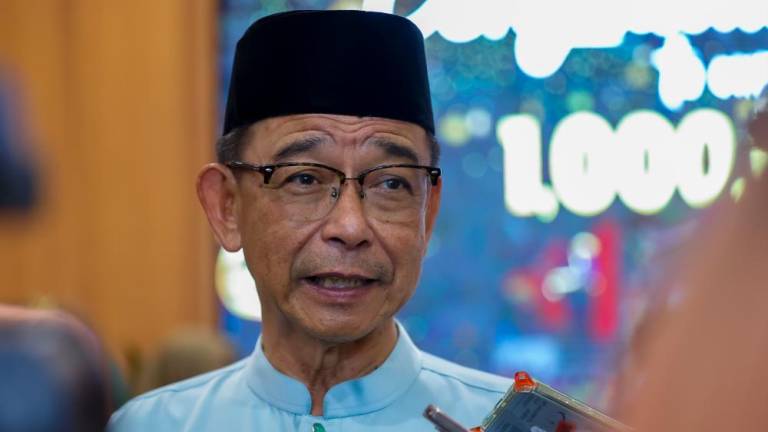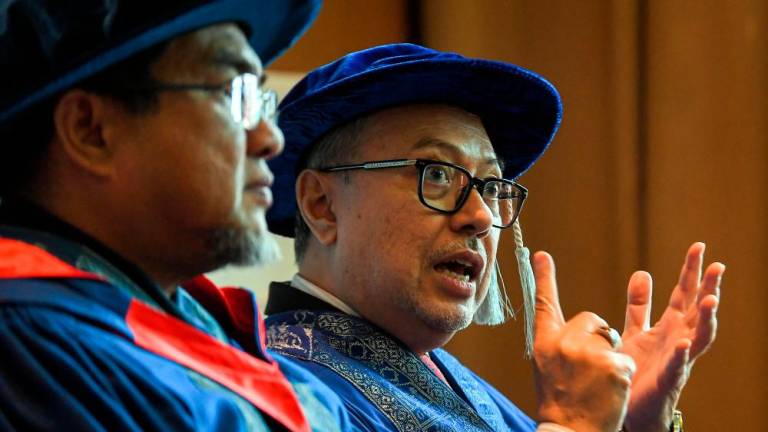WASHINGTON: US Secretary of State Antony Blinken will travel to Saudi Arabia next week at a time of touchy relations between Washington and its longtime Middle East ally, the State Department announced Friday.
The Sudan and Yemen wars, the continued Islamic State threat, and building Riyadh's relationship with Israel are on the menu for Blinken's June 6-8 trip.
It comes as both the United States and Saudi Arabia are seeking to broker a durable cease fire between Sudan's warring generals in talks in the Red Sea city of Jeddah.
“There is just a tremendous amount of work that we’re trying to do” with the visit, said Daniel Benaim, a senior State Department official dealing with Arabian Peninsula affairs.
“We’re focused on an affirmative agenda here and the great deal of work our countries can do together.”
Countering IS
Blinken will participate in a ministerial meeting on Wednesday with the Gulf Cooperation Council, and on Thursday he will join a meeting in Riyadh of the 80-strong coalition of countries fighting the Islamic State group.
That meeting will home in on the spread of jihadist extremism outside the Middle East, according to Ian McCary of the Department of State's Counterterrorism Bureau.
“We’re focusing in particular on Africa, where violent groups have adopted ISIS’s ideology and are attacking innocent people, destroying local economies, burning schools and healthcare centers, extorting communities, and preventing the creation of jobs,“ McCary said, using another acronym for the Islamic State.
The Riyadh gathering “underscores that the international community remains united in its determination to keep ISIS weak, fractured, and ultimately destroyed,“ he said.
The coalition will raise hundreds of millions of dollars to support community-level stabilization projects, said McCary, and Blinken will announce a “significant” new US contribution, he said.
Sudan, Yemen talks
The continued fighting in Sudan will also be a focus.
Efforts to produce a sustained cease fire between forces under two rival generals fighting since April have failed so far in the talks in Jeddah, where hundreds of diplomats and Sudanese citizens fled to from Khartoum after the fighting erupted.
Washington slapped sanctions on companies tied to the two generals Thursday, but that had no impact on the shelling and bombing that has left scores dead in the Sudanese capital and other areas.
The US and the Saudis are also directly involved in efforts to bring a halt to the lengthy conflict in Yemen between the Iranian-backed Huthi rebels and government forces backed by a Saudi-led coalition.
Yemen, the poorest country on the Arabian Peninsula, has experienced a period of calm since a truce negotiated by the United Nations in April 2022.
Mending ties
The trip follows a recent visit to Saudi Arabia by White House National Security Advisor Jake Sullivan and comes nearly a year after President Joe Biden visited the country, with only mixed success in improving relations.
Ties are complex and have frayed over US accusations of human rights abuses in the kingdom --including the 2018 murder of US-based Saudi dissident journalist Jamal Khashoggi -- and unhappiness that the Saudis raised oil prices in collusion with Russia to profit from the Ukraine war, rejecting US pleas to cap prices.
That led last year to US President Joe Biden ordering a review of the bilateral relationship, signaling his unhappiness.
But US officials don't hide their hopes for improved relations. One goal is to convince Riyadh to formally recognize Israel, as part of the Abraham Accords.
The Accords, launched by former president Donald Trump, have led to a number of Arab countries normalizing relations with the Jewish state.
But Riyadh holds to its demand that Israel recognize an independent Palestinian state along with security guarantees from Washington.
On Wednesday, the State Department’s top official for the Middle East, Barbara Leaf, told Congress that people should expect only a “gradual opening up” between Saudi Arabia and Israel.
“We see plenty of space to get things done even before normalization were to be achieved,“ she said. - AFP













